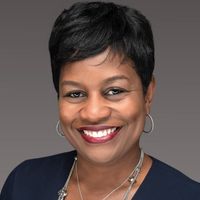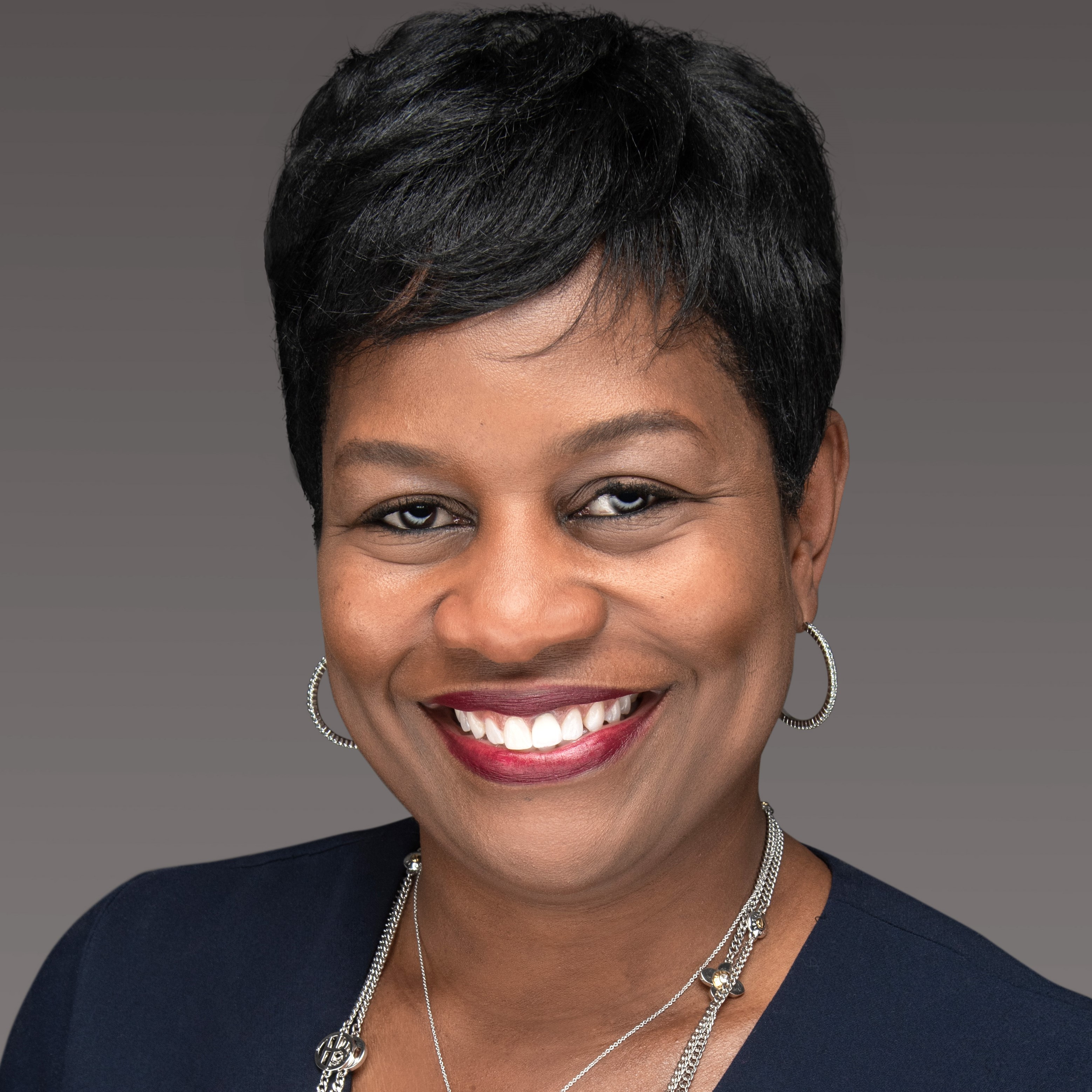How Can Women Worried About Retirement Stay on Track?
Developing a resilient long-term plan is more important than ever as more women fear being blindsided by outside events despite doing all the right things.


Profit and prosper with the best of Kiplinger's advice on investing, taxes, retirement, personal finance and much more. Delivered daily. Enter your email in the box and click Sign Me Up.
You are now subscribed
Your newsletter sign-up was successful
Want to add more newsletters?

Delivered daily
Kiplinger Today
Profit and prosper with the best of Kiplinger's advice on investing, taxes, retirement, personal finance and much more delivered daily. Smart money moves start here.

Sent five days a week
Kiplinger A Step Ahead
Get practical help to make better financial decisions in your everyday life, from spending to savings on top deals.

Delivered daily
Kiplinger Closing Bell
Get today's biggest financial and investing headlines delivered to your inbox every day the U.S. stock market is open.

Sent twice a week
Kiplinger Adviser Intel
Financial pros across the country share best practices and fresh tactics to preserve and grow your wealth.

Delivered weekly
Kiplinger Tax Tips
Trim your federal and state tax bills with practical tax-planning and tax-cutting strategies.

Sent twice a week
Kiplinger Retirement Tips
Your twice-a-week guide to planning and enjoying a financially secure and richly rewarding retirement

Sent bimonthly.
Kiplinger Adviser Angle
Insights for advisers, wealth managers and other financial professionals.

Sent twice a week
Kiplinger Investing Weekly
Your twice-a-week roundup of promising stocks, funds, companies and industries you should consider, ones you should avoid, and why.

Sent weekly for six weeks
Kiplinger Invest for Retirement
Your step-by-step six-part series on how to invest for retirement, from devising a successful strategy to exactly which investments to choose.
Today’s macroeconomic environment is scary — causing many investors to be nervous about their path to financial security in retirement. This is particularly true for women, who face notable barriers in saving for and funding their retirements. Wage gaps, time out of the workforce to care for their family or children and longer life spans mean that it’s even more important for women to develop a long-term plan before it’s too late.
Women Anticipate Retirement Turbulence and Adjust Accordingly
Since 2022, women have become more concerned about retirement. Twenty percent of non-retired women feel unsure about their ability to retire, and 15% of non-retired women say they cannot afford to retire at all, according to the eighth annual Advisor Authority study, powered by the Nationwide Retirement Institute.
While market volatility and high inflation have become the new norm, nearly nine in 10 women (87%) say they can do all the right things to manage their finances but still be blindsided by outside events, a double-digit increase since 2022. And while many believe we are in or approaching a financial crisis, less than half (45%) of women say they have a strategy in place to protect their assets against market risk.
From just $107.88 $24.99 for Kiplinger Personal Finance
Become a smarter, better informed investor. Subscribe from just $107.88 $24.99, plus get up to 4 Special Issues

Sign up for Kiplinger’s Free Newsletters
Profit and prosper with the best of expert advice on investing, taxes, retirement, personal finance and more - straight to your e-mail.
Profit and prosper with the best of expert advice - straight to your e-mail.
However, many women are adjusting their lifestyles to remain resilient and sustain financial health. Over the next 12 months, 31% of non-retired female investors say they will avoid unnecessary expenses to prioritize saving more for retirement. They are also being more cautious, with more than a quarter (28%) saying they will manage their investments more conservatively.
The Payoff of Working With a Pro
Regardless of whether today’s economic environment is officially dubbed a “financial crisis,” a run-of-the-mill recession or just a speed bump, an adviser or financial professional can be a crucial resource to help you achieve long-term financial security. More women are seeking this guidance, with 52% of female investors working with an adviser in 2023, up from 45% in 2022.
A financial adviser can help determine how much you should save and the right investment strategy for your risk profile. They can work with you to build a plan to help ensure you don’t outlive your savings, factoring in Social Security, health care and potential long-term care needs. They can also help you maximize tax efficiencies and develop a legacy plan for your family or loved ones.
In times of uncertainty, the value of sound financial advice is immeasurable – 97% of women with a financial adviser say working with one helps them to feel more confident in their ability to make good decisions, even during a crisis. And while this advice comes with a financial cost, most investors will tell you that better long-term investment outcomes more than offset this expense.
Need help finding an adviser or financial professional? Start by asking friends. Whether you’re looking for a female adviser or one with experience serving female clients, tap your personal network to find a good one.
Four DIY Tips to Help Protect Retirement Portfolios
Some people are hesitant to work with a financial professional due to cost, or perhaps they feel they can handle planning on their own. If that is the case for you or a loved one, here are a few do-it-yourself tips to keep your plan moving in the right direction:
- Saving something is better than nothing. Saving does not have to be an all-or-nothing proposition. Many women are balancing daily expenses, debt obligations or have a desire to make another investment, like purchasing a home. Don’t wait until you have checked those items off the list to begin saving for retirement.
- Don’t miss out on matching contributions. If your employer sponsors a retirement plan match, consider contributing enough to leverage the full match. These contributions could make a huge difference over the course of your career.
- Don’t sit on the sidelines. The biggest advantage a young investor has is time, so start saving now and let the magic of compounding interest begin to work for you. Remember, when markets are down, buying is cheap, so do not slow down in volatile markets unless you have to.
- Set it and forget it. Do not check your account balance every day or weekly. In today’s environment, that’s stress you don’t need. Remember, you are investing for retirement, not next week. When you see short-term fluctuations in your balance, avoid the temptation to make rash decisions. Instead, take stock of your investment strategy once a year. Many employer- sponsored retirement plans offer resources to help you do this for free. After that — let it go until you revisit your plan next year.
Many women feel compelled to spend their lives taking care of others. That’s admirable, but it shouldn’t happen at the expense of taking care of yourself. Whether you work with a financial professional or are just getting started on your journey to financial empowerment, there is no time like the present to put together a plan, or at least begin taking the initial steps to set yourself up for long-term success.
Investing involves market risk, including possible loss of principal. No investment strategy or program can guarantee a profit or avoid loss. Actual results will vary depending on your investment and market experience.
Nationwide and its representatives do not give legal or tax advice. An attorney or tax advisor should be consulted for answers to specific questions.
Nationwide Investment Services Corporation (NISC), member FINRA, Columbus, Ohio. Nationwide Retirement Institute is a division of NISC. NFM-22941AO
Profit and prosper with the best of Kiplinger's advice on investing, taxes, retirement, personal finance and much more. Delivered daily. Enter your email in the box and click Sign Me Up.

Kristi Martin Rodriguez currently serves as Senior Vice President of the Nationwide Retirement Institute® for Nationwide Financial, leading the teams responsible for advocating for and educating members, partners and industry leaders on issues impacting their ability to have a secure financial future. She was a founding member of the Ohio chapter of The National Association of Securities Professionals (NASP), an organization helping people of color and women achieve inclusion in the industry.
-
 Quiz: Do You Know How to Avoid the "Medigap Trap?"
Quiz: Do You Know How to Avoid the "Medigap Trap?"Quiz Test your basic knowledge of the "Medigap Trap" in our quick quiz.
-
 5 Top Tax-Efficient Mutual Funds for Smarter Investing
5 Top Tax-Efficient Mutual Funds for Smarter InvestingMutual funds are many things, but "tax-friendly" usually isn't one of them. These are the exceptions.
-
 AI Sparks Existential Crisis for Software Stocks
AI Sparks Existential Crisis for Software StocksThe Kiplinger Letter Fears that SaaS subscription software could be rendered obsolete by artificial intelligence make investors jittery.
-
 Social Security Break-Even Math Is Helpful, But Don't Let It Dictate When You'll File
Social Security Break-Even Math Is Helpful, But Don't Let It Dictate When You'll FileYour Social Security break-even age tells you how long you'd need to live for delaying to pay off, but shouldn't be the sole basis for deciding when to claim.
-
 I'm an Opportunity Zone Pro: This Is How to Deliver Roth-Like Tax-Free Growth (Without Contribution Limits)
I'm an Opportunity Zone Pro: This Is How to Deliver Roth-Like Tax-Free Growth (Without Contribution Limits)Investors who combine Roth IRAs, the gold standard of tax-free savings, with qualified opportunity funds could enjoy decades of tax-free growth.
-
 One of the Most Powerful Wealth-Building Moves a Woman Can Make: A Midcareer Pivot
One of the Most Powerful Wealth-Building Moves a Woman Can Make: A Midcareer PivotIf it feels like you can't sustain what you're doing for the next 20 years, it's time for an honest look at what's draining you and what energizes you.
-
 I'm a Wealth Adviser Obsessed With Mahjong: Here Are 8 Ways It Can Teach Us How to Manage Our Money
I'm a Wealth Adviser Obsessed With Mahjong: Here Are 8 Ways It Can Teach Us How to Manage Our MoneyThis increasingly popular Chinese game can teach us not only how to help manage our money but also how important it is to connect with other people.
-
 Looking for a Financial Book That Won't Put Your Young Adult to Sleep? This One Makes 'Cents'
Looking for a Financial Book That Won't Put Your Young Adult to Sleep? This One Makes 'Cents'"Wealth Your Way" by Cosmo DeStefano offers a highly accessible guide for young adults and their parents on building wealth through simple, consistent habits.
-
 Global Uncertainty Has Investors Running Scared: This Is How Advisers Can Reassure Them
Global Uncertainty Has Investors Running Scared: This Is How Advisers Can Reassure ThemHow can advisers reassure clients nervous about their plans in an increasingly complex and rapidly changing world? This conversational framework provides the key.
-
 I'm a Real Estate Investing Pro: This Is How to Use 1031 Exchanges to Scale Up Your Real Estate Empire
I'm a Real Estate Investing Pro: This Is How to Use 1031 Exchanges to Scale Up Your Real Estate EmpireSmall rental properties can be excellent investments, but you can use 1031 exchanges to transition to commercial real estate for bigger wealth-building.
-
 Should You Jump on the Roth Conversion Bandwagon? A Financial Adviser Weighs In
Should You Jump on the Roth Conversion Bandwagon? A Financial Adviser Weighs InRoth conversions are all the rage, but what works well for one household can cause financial strain for another. This is what you should consider before moving ahead.